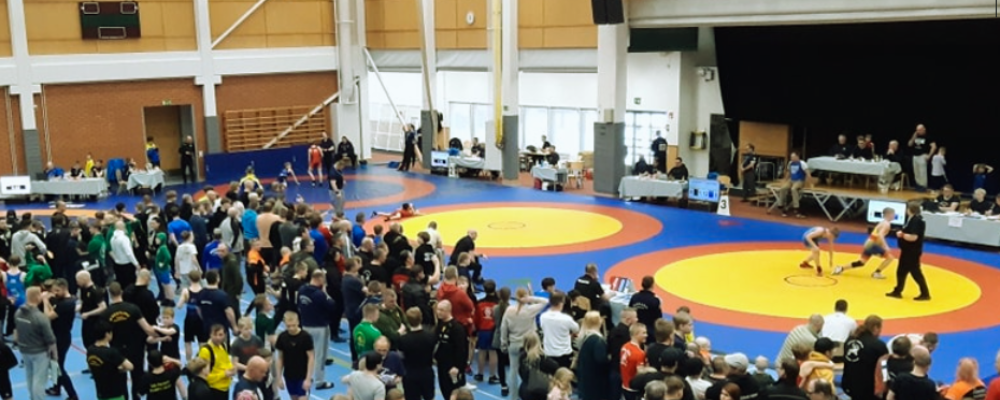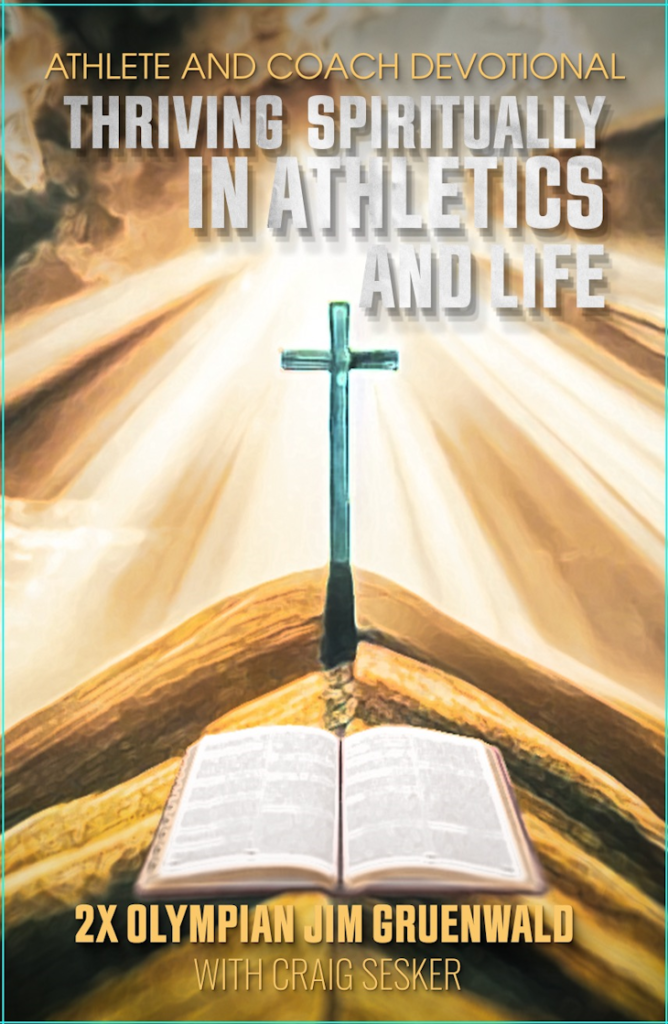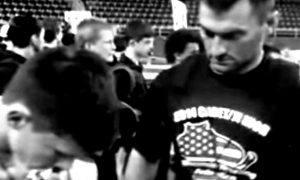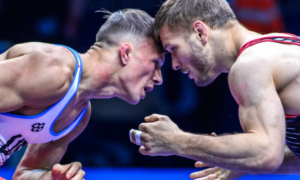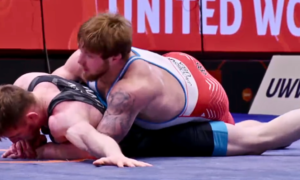On Saturday, three top young United States Greco-Roman prospects competed at the International MYHI Tournament in Ilmajoki, Finland. Will Scherer earned bronze in the 74 kg category, Amryn Nutter (68 kg) finished 4th, and Aidan Squier (82 kg) came in 5th.
The trio’s results are noteworthy, particularly in this case for Scherer, who since venturing into a full-time Greco-Roman career as a high schooler two-plus years ago has steadily improved amid the growing pains which are so commonly associated with such an endeavor. When Scherer first began wrestling overseas, he had his struggles. While teammates on the same tours were consistently placing higher in various tournaments, Scherer kept a positive mindset and exercised patience. More importantly, he took stock of the lessons learned and brought them back with him into the Combat WC practice room in Blue River, Wisconsin. It is not that all of this international wrestling stuff has suddenly become easy for Scherer, or any of his US contemporaries. It hasn’t, and will not. Not ever. But that’s the whole idea behind this type of commitment, and why unusual bravery is required for American age-group wrestlers who dare embark on full-time Greco careers.
The competition overseas is of a much higher technical quality than what these athletes encounter on home soil. To that effect, wins in Europe (or elsewhere) are great, but losses are expected. In many instances, the losses are indeed assigned more value than the victories. When readers browse through tournament recaps such as the one from Saturday, they are likely focusing on the box scores and how many medals the Americans might have earned. But data points — which stripped down are nothing more than the recording of outcomes — are not why young men like Scherer, Nutter, or Squier invest in these overseas expeditions. Whereas you might notice wins and losses listed at the bottom of an article page, they are thinking about what happened in those matches, and what can be done for course correction, as opposed to what the scores were. In other words, bout results are almost irrelevant when compared to the overall acquisition of knowledge which drives their desire to continue on this altogether unique path.
And as briefly touched upon in Saturday’s recap of the International MYHI Tournament, the three-man unit in Finland have just begun their current Euro stayover. They will remain in-country through the week for a training camp, attend another camp in Romania, compete in France, and participate in one more multi-national training hosted in Hungary as a means to close out the trip. This is their lifestyle. In the short-term, objectives such as making the ’25 U20 World Team are on their minds, but all of this points towards a much bigger picture. The past few years for Scherer and Squier, and more recently for Nutter, have been about preparing for what they hope will eventually translate into successful careers on the Senior level. Because all three have also committed to enrolling in college at Northern Michigan University come August, it is stories like theirs that the US aims to elevate and expand so as to demonstrate the necessary price to pay for the Greco-Roman program to once again emerge as a power player in the most popular style of wrestling in the world.
Post-Int’l MYHI Tournament Interviews
Amryn Nutter — 67 kg, Combat WC
5PM: Six matches is a good amount regardless of outcome. How do you feel physically?
Amryn Nutter: Well, coming into it I was tired just from the jet lag, but conditioning-wise I felt good. Towards the end of the tournament, after I lost to William (Ekeroth), I had back-to-back six-minute matches, which takes a lot out of you. By the time the last match rolled around, I was a little slow, but overall I felt really good.
5PM: What made the difference against Lauri Perrka (who had defeated Nutter in two close matches previously)?
Nutter: Being more physical. I got put down in the first period and stopped his gut. He felt like he needed to get a turn and forced his gut, so I stepped over and caught him on his back. The main difference is the mental part. I did not want to lose to him again after losing the last two times. I thought in my mind that I was going to win the whole time.
5PM: How did you and the other two guys acclimate before the tournament?
Nutter: We were fine. The boys and I had a couple of good workouts on Friday to get that fatigue off from the plane, so that helped a lot. The only thing is the sleep could have been better for all of us, so that may have played a factor in our performance, but overall it went fairly well I would say.
Will Scherer — 74 kg, Combat WC
5PM: What was your mentality after being forced to rebound from a loss in Round 1?
Will Scherer: I knew if I lost one of my next matches in pool play that I would be done wrestling. I gave it everything I had just for the opportunity to wrestle the next match. Also, after the first loss, I needed to make adjustments and just move, take ground, and get into scoring positions for the opportunity to score.
5PM: What were you most pleased with from performance, and what were you least pleased with?
Scherer: I am not pleased with my performance. I’m not mad, but I’m also not satisfied by winning bronze. I am least pleased with not moving my feet too much in the first match, and the match I lost against (Oliver) Prada. It cost me some scores on the feet and I needed those scores.
5PM: How have you felt thus far this year after both moving up in weight as well as in your age division?
Scherer: I felt good about this year being up in weight from the previous year because I have been wrestling with my roommate/teammate Aidan Squier, who wrestles 82 kg. If I can wrestle him well in practice, I can then add some of the best parts of his game to mine. He has made the jump to wrestling bigger guys a lot more manageable. I don’t mind having the opportunity wrestling older guys because it is more of a test and reveals character. You can’t be scared to wrestle just because someone has accomplishments and have been in the sport for a long time. Wrestling at the U23 Nationals last year when I was not super physically-mature has also given me confidence when wrestling in older divisions.
Aidan Squier — 82 kg, Combat WC
5PM: What can you learn from this particular performance?
Aidan Squier: I didn’t have a great turnout this weekend, but I’m honestly not too upset about it. My goal this tournament was to go out and try more things. To have more scoring attempts. Doing so uncovered some mistakes that I’m glad I’m making now in prep for World Team Trials. I learned some technical mistakes I need to correct and also felt like I made some improvement on the continuous mental battle wrestling brings.
5PM: How have you been managing the training and competition cycle this season?
Squier: I’ve been enjoying the training and competition cycle this season. We have been able to go to some great tournaments and have some tough much-needed training camps. I’m exited for what the big trip I’m currently on will entail and look forward to taking a big step in my wrestling journey.
5PM: What in your mind will it take for you to make the 2025 U20 World Team?
Squier: I believe that technically I have what it takes to make the World Team. I think the two main things I need to focus on is my cardio and brutality. I need to take the techniques I have and wear on my opponents for six minutes.
Steldt’s Perspective
Combat WC founder Lucas Steldt, who trains Nutter, Scherer, and Squier, among others, provided his thoughts on the overseas tour that the three athletes have just begun and imparted a grander scope of how he sees the developmental picture for Team USA Greco-Roman going forward.
Lucas Steldt
“This just short of a month-long international tour and this needs to become standard operating procedure in our country. This isn’t a gift or some pre-American seasonal trip or a summer trip that the average American high school or college kid takes. This is our third international experience this training year with a couple more planned. Greco-Roman is a global sport. The world is our conference. This tour starts in Western Europe and ends in Eastern Europe. Later in the year, we are looking at a Russian competition, as well. The year, like I’ve stated before, is calculated. Exposure, experience, and acclimation. We need exposure at the beginning of the year with more experience in the middle of winter; then we need acclimation at the end of the year. I use the term “forced acclimation” a lot in our development concepts. This is an example of that.
“I recently saw a post from Kyle Dake regarding Greco-Roman that discussed changes needing to be made. Yes, I totally agree, but we have been screaming this for years. For over a decade, actually. But the only change that is going to give the USA a genuine reproducible process to develop Greco-Roman competence must center around youths training full-time Greco Roman with zero other interferences by the ages of 15 to 16. In a perfect world, 10-years-old. Athletes need to be in schooling that allows them to travel as needed for domestic and international training and competition. The answer is extremely simple.”

Listen to “5PM57: Kamal Bey and David Stepanyan” on Spreaker.
Listen to “5PM56: Rich Carlson and Spencer Woods” on Spreaker.
SUBSCRIBE TO THE FIVE POINT MOVE PODCAST
iTunes | Stitcher | Spreaker | Google Play Music


